5 Tips To Avoiding Internet Scams
INTERNET SCAMMERS – WE HATE’EM. And you probably do, too. However, they’re becoming more and more clever, and far too many internet users are falling for their savvy scams!
According to Luke Bar of ABC News, Americans lost more than $10.6 BILLION to internet scams in 2022 (read the full article HERE), with a lot of it coming from phishing scams – or unsolicited emails, messages, or phone calls from sources ACTING like a legitimate company.
So, what can you do to avoid being hooked by one of these deceitful Phisherman? (see what we did there?) The following 5 tips should be pretty helpful.
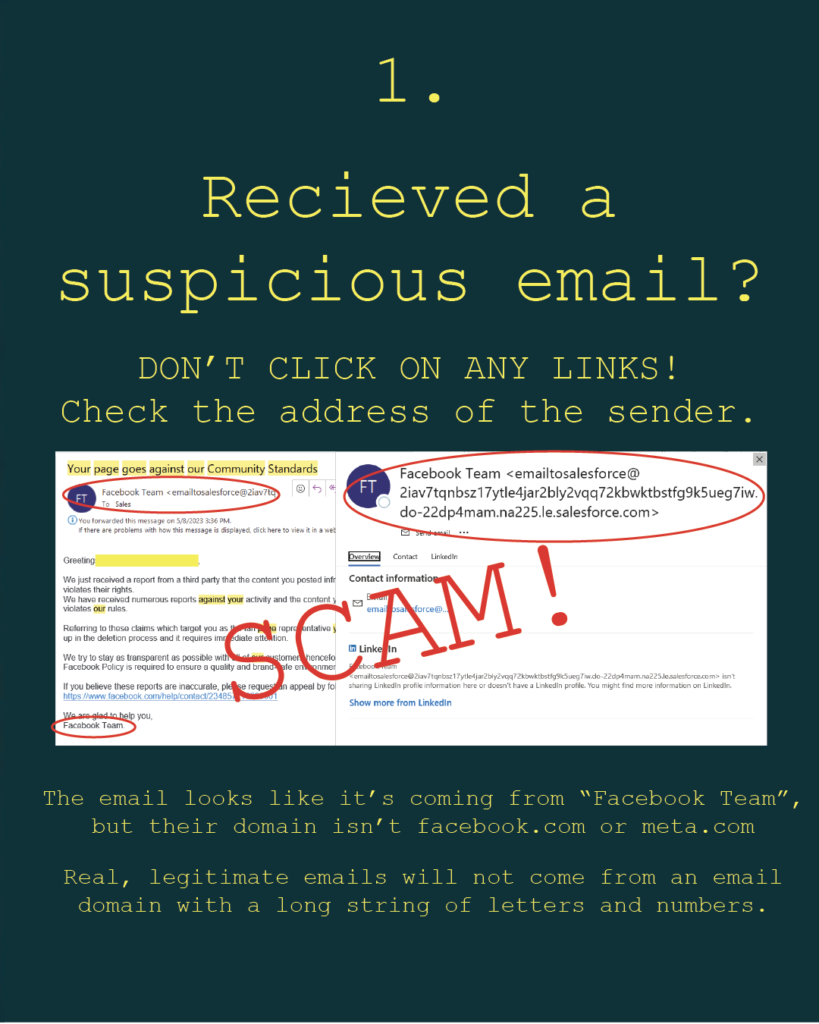
We’ve all been there before… We get a suspicious email, message, DM or post. What do we do with it?
First off – DON’T CLICK ON ANY OF THE LINKS!
Facebook Business Profiles might receive emails like these saying your page has violated policies. PAY ATTENTION TO THE RETURN EMAIL ADDRESS! Is it from Meta.com?
Verifying that a website has a secure domain is a must. Always make sure the website has the “lock” icon next to the URL when you click on the URL bar and expand.
A good general thumb would be to trust your instincts – does the website URL pass the sketchy sniff test? If not, report as SPAM and move on.

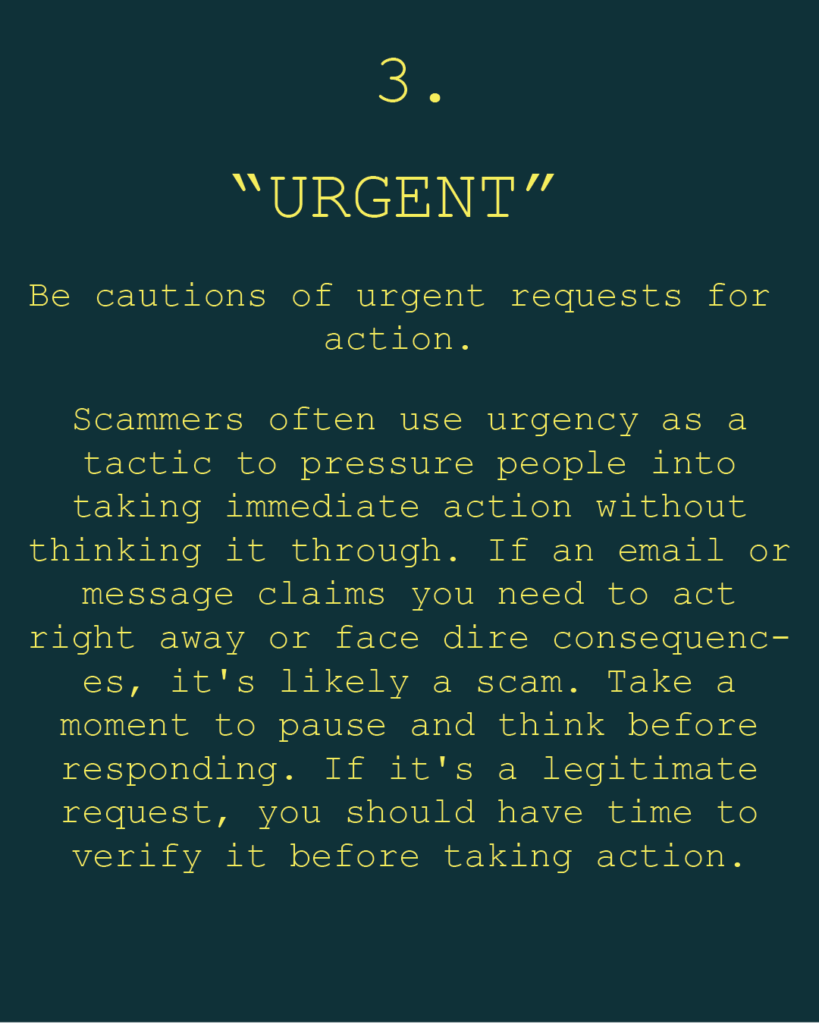
Be very wary of messages or warnings that contain the words URGENT.
Scammers will often get you to do something bad simply because they made you feel like you had to act RIGHT THIS SECOND or something bad was going to happen. Legitimate requests will provide pathways and timelines for rational resolutions.
We’ve seen it before: Nigerian Prince needs to store their money somewhere! Can you pass along your bank info? 😬
Scammers will often try to pose as legitimate organizations, like banks or government agencies, to get you to provide your sweet, sweet private info. NEVER provide sensitive information under these pretenses.
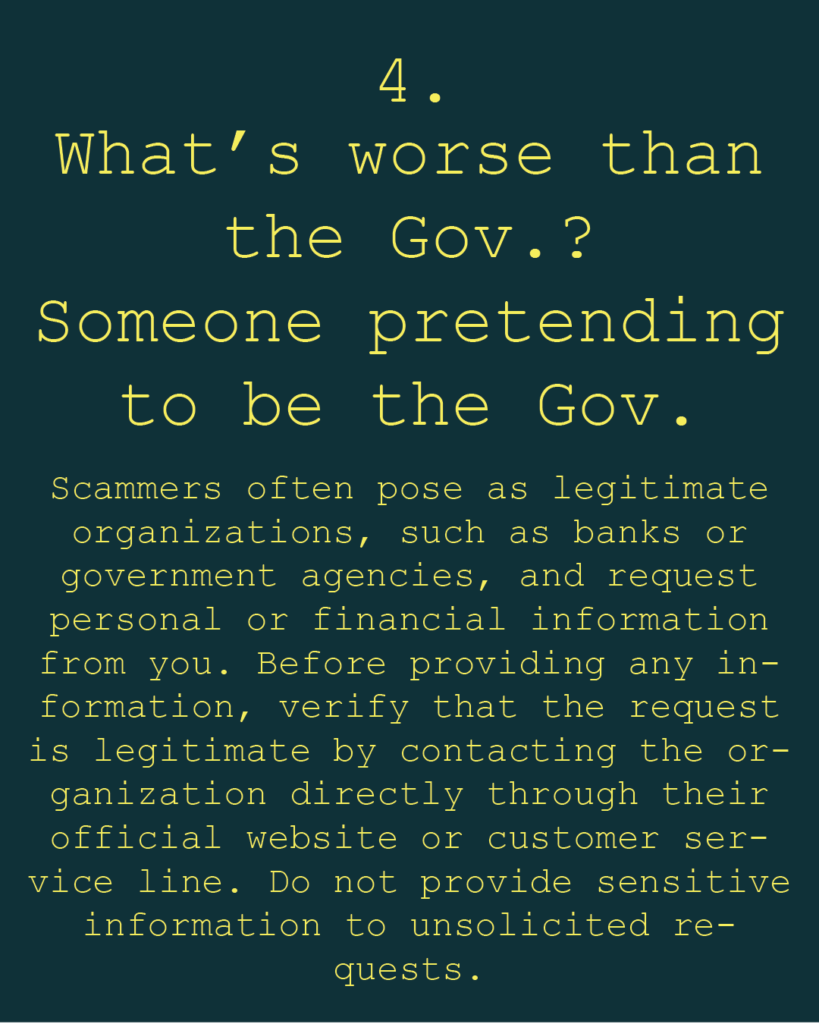
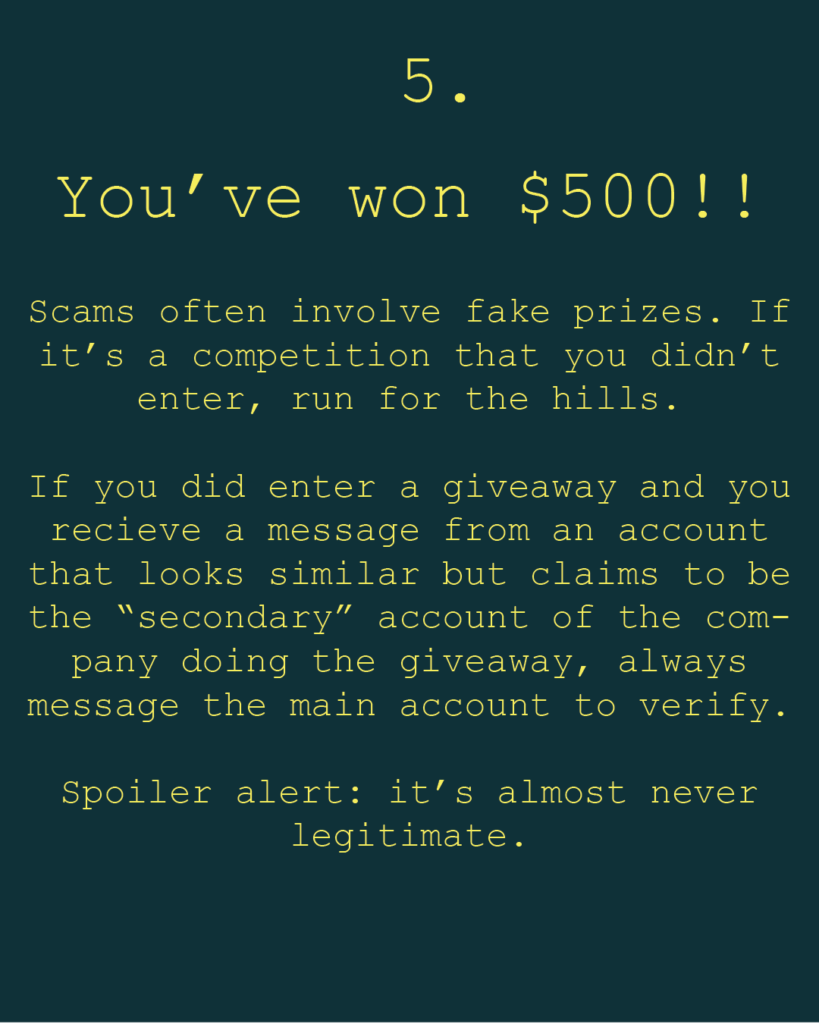
Another scammer tactic is to convince you that you’ve won something! HEY YOU’VE WON $500!! Just give me your PayPal info and we’re good to go!
The best way to cover your tail is to message the company to verify if it’s real. Unfortunately – unless you entered a giveaway and are expecting some sort of correspondence – most YOU’VE WON $500! emails are a scam.
Sorry to burst your bubble.
Lastly, USE COMMON SENSE. If it doesn’t feel right, it’s probably not right. Yes, you’re gorgeous and any Nigerian Prince would be lucky to have you, but the money just ain’t real. I’m sorry.
Be sure to trust your instincts and research before you interact. Again – never click on any links if there’s any suspicion that it might not be real.
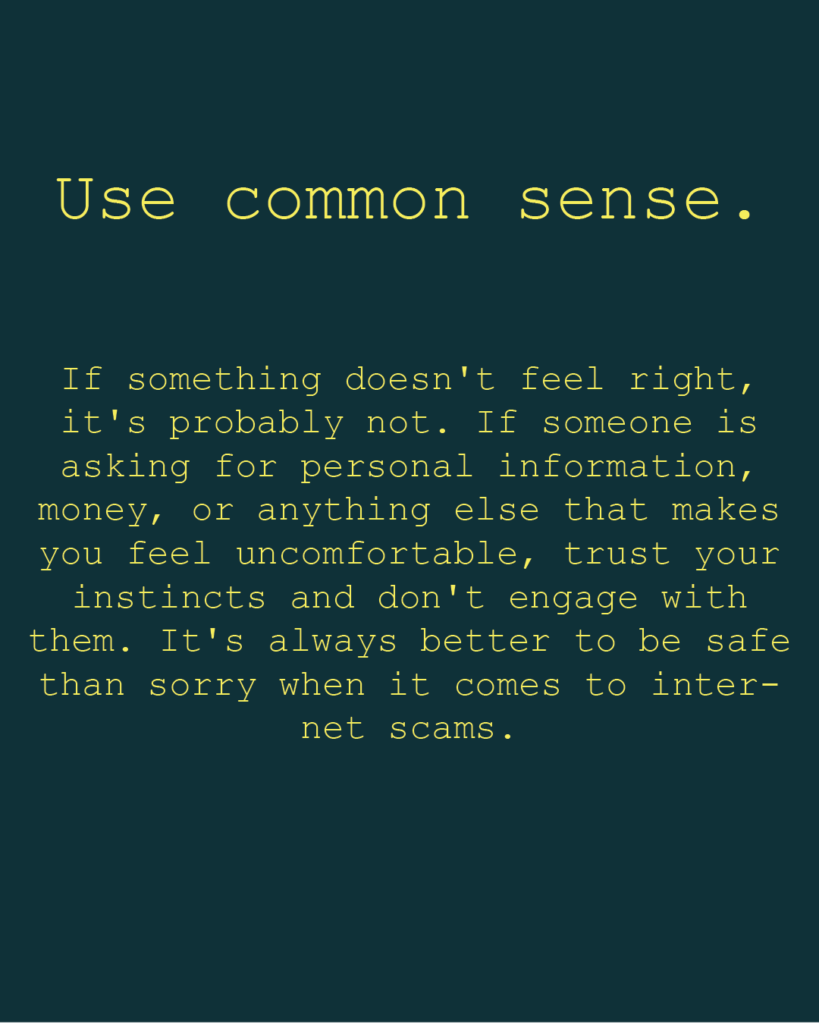
To wrap it up, remember – don’t click on any links, verify with the main company if you think it could be legitimate, URGENT doesn’t mean due diligence goes out the window – take a deep breath and verify, always pay attention to the return sender’s email (i.e., facebooksender@gmail.com is probably not an official Facebook email address), and USE YOUR COMMON SENSE. If you follow these steps, you’ll keep yourself from falling into the fake arms of a nasty scammer.